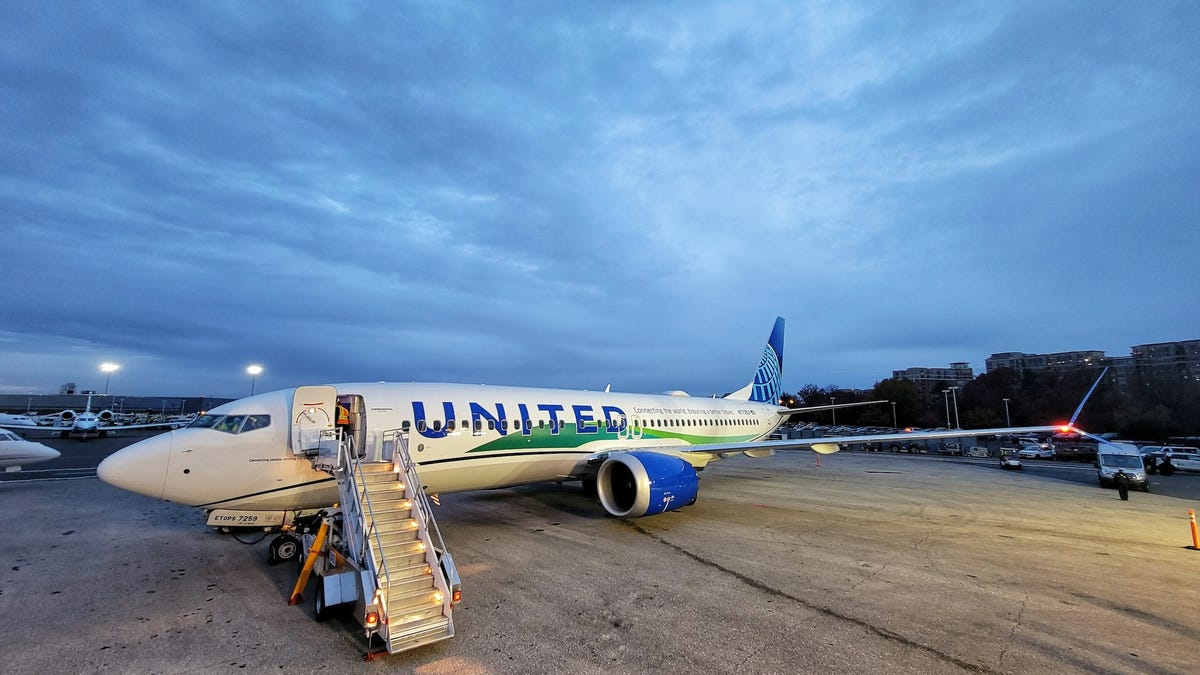United becomes first airline to fly passenger aircraft using 100% sustainable aviation fuel
The engine using sustainable aviation fuel emitted around 75% less carbon dioxide than a flight using traditional jet fuel, the company says.

Ready for takeoff.
United Airlines made history on Wednesday by operating the world's first passenger flight using 100% sustainable aviation fuel. The plane took off from Chicago's O'Hare International Airport and headed to Reagan National Airport in Washington, DC, with more than 100 passenger on board, according to a company press release.
"Aviation history is cleared for takeoff," United tweeted, along with a video of the takeoff. Passengers included United CEO Scott Kirby, business leaders, government officials, members of the media, NGOs and executives from partner companies including Boeing and World Energy, which makes SAF, or commercial sustainable aviation fuel.
Aviation history is cleared for takeoff.
— United Airlines (@united) December 1, 2021
The world’s first passenger flight using 100% sustainable aviation fuel (SAF) is en route to @Reagan_Airport. pic.twitter.com/63Don45bBg
The plane used was a new United 737 Max 8. "Currently, airlines are only permitted to use a maximum of 50% SAF on board," United said. "The SAF used on today's flight is drop-in ready and compatible with existing aircraft fleets."
United got permission to operate one engine using 100% SAF, while the other used conventional jet fuel "to further prove there are no operational differences between the two and to set the stage for more scalable uses of SAF by all airlines in the future." The plane flew 612 miles, and the engine using SAF emitted an estimated 75% less carbon dioxide than a flight using traditional jet fuel, United said.
"Today's SAF flight is not only a significant milestone for efforts to decarbonize our industry," Kirby said in a statement, "but when combined with the surge in commitments to produce and purchase alternative fuels, we're demonstrating the scalable and impactful way companies can join together and play a role in addressing the biggest challenge of our lifetimes."

